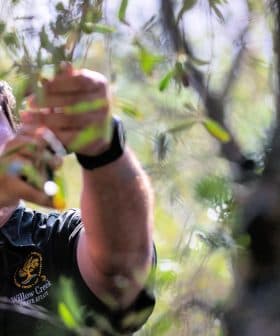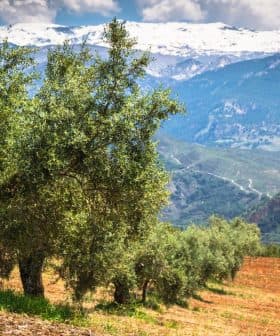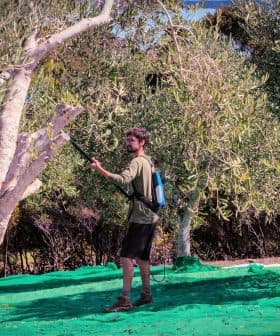Insurance Needs for Olive Growers Change with Climate

The insurance industry is adapting to the changing threats facing olive farmers, with a focus on climate-related risks and drought in particular. European insurers are increasingly incorporating climate-related changes into their underwriting and investment portfolios to address the impact of extreme weather events on olive oil production, despite the high cost of insurance coverage and the need for a balance between technology and insurance to mitigate future risks.
As the nature of threats facing olive farmers changes, so is the insurance industry that underwrites the risk posed by those hazards.
In the past, the “main risks for olive farming was not climatic, but more diseases (including parasites), price volatility and fraud (involving the re-assigning of olive locations),” an agricultural insurance insider told Olive Oil Times.
More recently, several European insurers have been working to elevate the importance of climate-related changes throughout their underwriting and investment portfolios.
See Also:Rising Prices, New Technology Attract Private Equity Interest in Olive OilThis move has become more pertinent, especially in the agricultural sector, which is increasingly plagued by the changing climate and extreme weather events.
According to research from Olive Oil Times, global olive oil production is set to decline for a second straight year in the 2023/24 crop year, falling to 2.4 million tons, largely due to drought in the Mediterranean basin.
As a result, European insurance underwriters are issuing policies that combine protection against disease with that of drought.
REVO Insurance, the first Italian operator specializing in parametric risks and specialty lines, announced plans in October to extend its range of products for the agricultural sector with coverage specifically designed for Italian olive oil producers.
The Italian olive sector, “worth €1.4 billion in 2022, suffered a sharp fall in national production, down by 37 percent or 121,000 tons, due to drought, heat and olive fruit fly,” according to a nationwide survey conducted by the Umbria Chamber of Commerce.
Despite the move to raise the importance of climate-related insurance in Europe, there is still a gap. According to European Central Bank data, only a quarter of the losses from climate-related disasters are covered. “Greater coverage could reduce the economic damage that results from them.”
Part of the reason for this gap is the high cost of insurance coverage. In Spain, the world’s largest olive oil producer, an investigation by Agropopular found that only 4.5 percent of the country’s olive grove surface area is insured.
“In the olive sector, although it is possible to insure for drought, it is a very high risk, so there is a high price, and usually there are high deductibles and stop losses,” an insurance underwriter at an Italian firm told Olive Oil Times. “For new olive groves, it would be necessary to provide both irrigation coverage and coverage against drought.”
Even when insurance coverage is affordable, farmers may underestimate the likelihood and impact of catastrophes.
Alternatively, farmers could turn to new technology to improve yields. “Farmers need improved agronomic techniques, new olive oil varieties and decision-making support,” the underwriter said.
For example, olive oil yields can fluctuate significantly due to their dependence on sufficient precipitation at specific moments in fruit development; one option to hedge the yield risk in cultivation could be satellite-based weather index insurance, according to research published in the Australian Journal of Agricultural and Resource Economics.
In Spain and Italy, olive farmers are already using satellite images to safeguard olive oil production by tracking where their land is the driest and using precision irrigation.
Ultimately, farmers need to set a balance between technology and insurance to tackle the issue because, moving forward, climate-related disasters could raise insurance prices.
In France, premiums would rise by 130 to 200 percent by 2060 to cover these losses, according to the central bank. In terms of insurance prices, that is an increase of between 2.8 and 3.7 percent per annum, a significant rise in a low-margin business.









